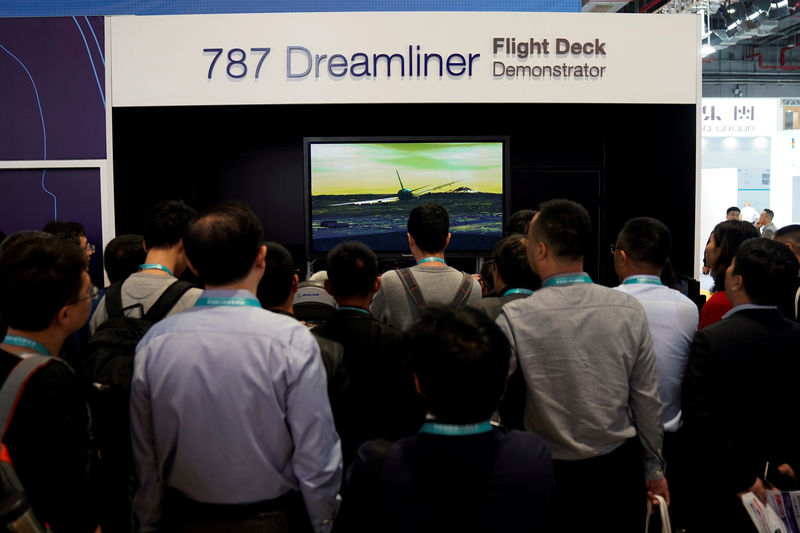By Eric M. Johnson and Tim Hepher
SEATTLE/PARIS (Reuters) - Boeing Co (N:BA) faced additional uncertainty on Wednesday over future production rates for its 787 Dreamliner after Russian carrier Aeroflot (MM:AFLT) formally canceled an order for 22 aircraft valued at about $5.5 billion at list prices.
The cancellation, first reported by the Seattle Times and buried in Boeing's monthly order release, is the final step in unwinding an order that had been shrouded in uncertainty ever since the airline said in 2015 it no longer needed the planes.
But the lost business theoretically knocks a hole in the production profile for the 787 Dreamliner after the world's largest planemaker increased its build-rate to 14 aircraft per month from 12 at twin U.S. factories.
Barring new orders, Boeing faces the growing possibility that it may have to cut production back by 2022, industry sources say, piling on new pressure as the grounding of the smaller 737 MAX stretches into its eighth month.
One of the sources, who closely monitors Boeing's production plans, said the planemaker has dozens of unsold or potentially vacant 787 positions on its production line in 2022.
The actual number of unfilled production slots depends on assessments about the ability of airlines to take delivery as promised, a subjective guess that planemakers keep confidential.
Boeing declined to comment.
While demand for the narrowbody aircraft that dominate most fleets remains strong, demand for larger, long-haul aircraft like the 787 and Airbus (PA:AIR) A330 and A350 has weakened.
Boeing won most of the widebody orders so far this year but neither planemaker is selling as many aircraft as it would like amid trade tensions, concerns over the global economy and the increased ability of smaller narrowbodies to fly long distances.
Boeing Chief Executive Dennis Muilenburg told a conference last month that Boeing is closely tracking "macro risk areas," and had reserved slots on its 777 and 787 production lines for Chinese orders that have been held back by the U.S.-China trade war.
"There is dependency there on Chinese orders ultimately coming through," Muilenburg said.
The comments surprised some suppliers because planemakers typically raise output only after selling aircraft rather than opening the taps in the hope of winning orders later - though a strategic buyer like China might expect special treatment.
Boeing remains under pressure to reduce an overhang of deferred accounting costs on the 787 by producing more units.
European rival Airbus also has gaps in its production profile for widebody jets, especially the upgraded A330neo and to a lesser extent the newer A350, other industry sources said.
The lull in widebody orders has also raised questions about jetliner pricing. Multiple industry sources say aircraft are being offered at unusually steep discounts, something that officials at both planemakers deny.

Meanwhile, company data showed that Boeing had officially booked a previously announced order from Air New Zealand for eight 787-10s, the largest Dreamliner model.